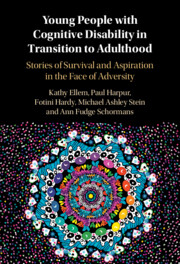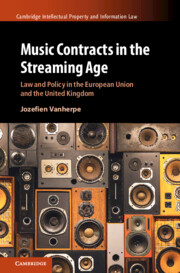Refine search
Actions for selected content:
152 results
7 - Will there be Solidarity in Data-Driven Societies?
-
-
- Book:
- The Question of Solidarity in Law and Politics
- Published online:
- 22 December 2025
- Print publication:
- 29 January 2026, pp 139-158
-
- Chapter
-
- You have access
- Open access
- HTML
- Export citation
6 - Restoring Exploitation, Recalibrating Exclusion, and Recommodification since 1977
-
- Book:
- The Making of Labour Precarity in China since 1949
- Published online:
- 19 December 2025
- Print publication:
- 22 January 2026, pp 132-163
-
- Chapter
- Export citation
Mental illness, forced labour, and colonial biopower in Kabba Province of Northern Nigeria, 1900–1947
-
- Journal:
- Medical History , First View
- Published online by Cambridge University Press:
- 27 November 2025, pp. 1-20
-
- Article
-
- You have access
- Open access
- HTML
- Export citation
Chapter 3 - Marx
- from Part II - Morality Critique
-
- Book:
- Modern Moral Philosophy in the Nineteenth Century
- Published online:
- 15 November 2025
- Print publication:
- 30 October 2025, pp 101-122
-
- Chapter
- Export citation
12 - The EU Regulatory Patchwork for Dark Patterns
-
-
- Book:
- Toward an Inframarginal Revolution
- Published online:
- 26 September 2025
- Print publication:
- 16 October 2025, pp 443-467
-
- Chapter
- Export citation

Kant on Social Suffering
-
- Published online:
- 28 July 2025
- Print publication:
- 21 August 2025
-
- Element
- Export citation
2 - Why Is Innovation Difficult?
-
- Book:
- Innovation Management
- Published online:
- 06 June 2025
- Print publication:
- 10 July 2025, pp 14-23
-
- Chapter
- Export citation
7 - The Ethics of Clothing Production
-
- Book:
- A Philosopher Looks at Clothes
- Published online:
- 08 May 2025
- Print publication:
- 05 June 2025, pp 148-166
-
- Chapter
- Export citation
5 - Recommender Systems from Multiple Perspectives
-
- Book:
- Deep Learning Recommender Systems
- Published online:
- 08 May 2025
- Print publication:
- 22 May 2025, pp 143-190
-
- Chapter
- Export citation
Chapter 6 - Capital: Value, Labour-power, Exploitation, Crisis
-
- Book:
- Karl Marx and the Actualization of Philosophy
- Published online:
- 17 April 2025
- Print publication:
- 24 April 2025, pp 125-144
-
- Chapter
- Export citation
Chapter 2 - Violence against Young People with Cognitive Disability
-
- Book:
- Young People with Cognitive Disability in Transition to Adulthood
- Published online:
- 06 February 2025
- Print publication:
- 13 February 2025, pp 22-39
-
- Chapter
- Export citation
11 - Artificial Intelligence and Intellectual Property Law
- from Part II - AI, Law and Policy
-
-
- Book:
- The Cambridge Handbook of the Law, Ethics and Policy of Artificial Intelligence
- Published online:
- 06 February 2025
- Print publication:
- 13 February 2025, pp 211-227
-
- Chapter
-
- You have access
- Open access
- HTML
- Export citation
Chapter 6 - The Many Faces of Violence
-
- Book:
- Young People with Cognitive Disability in Transition to Adulthood
- Published online:
- 06 February 2025
- Print publication:
- 13 February 2025, pp 106-140
-
- Chapter
- Export citation
Chapter 5 - Experiences of Young People with Cognitive Disability
-
- Book:
- Young People with Cognitive Disability in Transition to Adulthood
- Published online:
- 06 February 2025
- Print publication:
- 13 February 2025, pp 77-105
-
- Chapter
- Export citation

Young People with Cognitive Disability in Transition to Adulthood
- Stories of Survival and Aspiration in the Face of Adversity
-
- Published online:
- 06 February 2025
- Print publication:
- 13 February 2025
5 - Performance of the Contract
-
- Book:
- Music Contracts in the Streaming Age
- Published online:
- 09 January 2025
- Print publication:
- 23 January 2025, pp 166-269
-
- Chapter
- Export citation
5 - The UK’s Crackdown on Illegal Work and Human Trafficking
-
- Book:
- Constructing Modern Slavery
- Published online:
- 09 January 2025
- Print publication:
- 23 January 2025, pp 131-163
-
- Chapter
-
- You have access
- Open access
- HTML
- Export citation
8 - Conclusions
-
- Book:
- Music Contracts in the Streaming Age
- Published online:
- 09 January 2025
- Print publication:
- 23 January 2025, pp 319-330
-
- Chapter
- Export citation
4 - The EU’s Integrated and Holistic Approach
-
- Book:
- Constructing Modern Slavery
- Published online:
- 09 January 2025
- Print publication:
- 23 January 2025, pp 99-130
-
- Chapter
-
- You have access
- Open access
- HTML
- Export citation

Music Contracts in the Streaming Age
- Law and Policy in the European Union and the United Kingdom
-
- Published online:
- 09 January 2025
- Print publication:
- 23 January 2025
